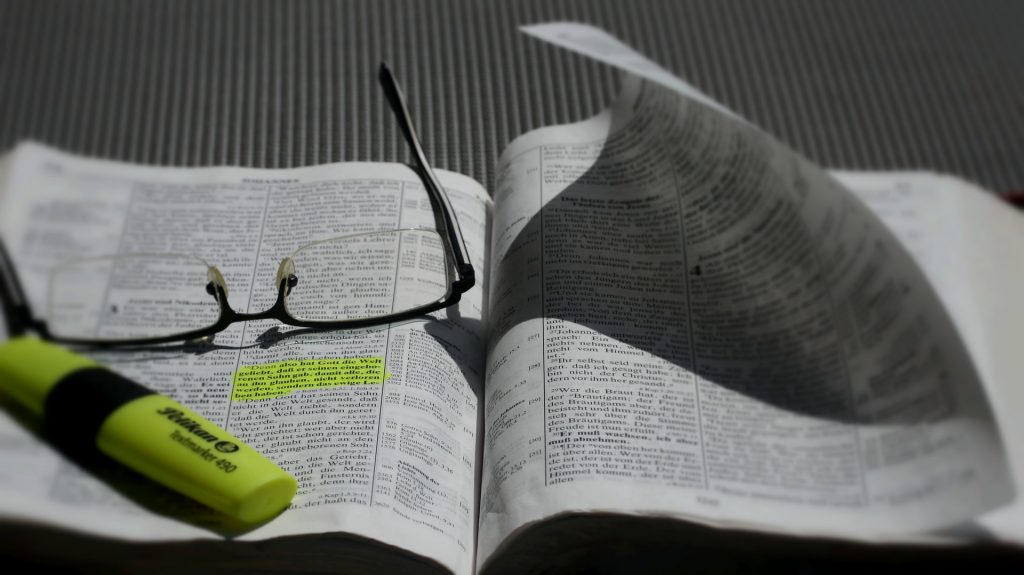
Proverbs 13:22 A good man leaves an inheritance to his children’s children, but the sinner’s wealth is laid up for the righteous. ESV
This verse has two parts. A good man retains his wealth and leaves an inheritance to his grandchildren. The sinner loses his wealth, and his wealth is given to the righteous. Interesting.
This is not the only place in God’s Word that this idea of the sinner laying up wealth for the righteous is talked about. AND God gives us some examples of it.
Ecclesiastes 2:26 For to the one who pleases him God has given wisdom and knowledge and joy, but to the sinner he has given the business of gathering and collecting, only to give to one who pleases God. … ESV
Some examples of this would be: When Israel finally left Egypt, the Egyptians so much wanted to get rid of them they gave Israel most all their wealth and also the wealth that had been brought into Egypt during the famine in the days of Joseph. Then when Israel entered the promised land, God gave them houses they had not built, cities they had not walled, vineyards they had not planted and livestock they had not raised.
None of this was earned by their labor. God gave them this wealth that had been laid up by the sinners.
When God created the heavens and the earth, He put the resources into the earth for His family to use. He had no idea that Adam would hand the dominion of the earth over to the devil, but Adam did that anyway. Now the devil, not owning the earth but being the god of it, makes sure his people, sinners of all sorts, have most of the resources. But God still owns the place, and God has stated that all that storing up of wealth that the sinners do, they are really laying it up for God’s family, His children. He intended for His children to have it in the first place!
We don’t pray and ask God to give us others’ wealth. He has plenty to go around. But we do need to believe that it is His will to prosper us, and if we receive a large sum, we say thanks and put it in the bank.
Another example would be in 2 Kings 6:24 and following. This is the record of the lepers at the gate. The record is too long to recount here, but the wealth of that occupying army was given lock, stock and barrel to Israel.
These people did not earn the money or the wealth. It is common to feel that if you did not physically earn the money, you don’t deserve it. Then you might try to give most of it away so your conscious is clear and comfortable. Yet God says the wealth of the sinner is laid up for the just – the righteous. For you, His child. You may need to change your mind – your thinking.
It might be good to put these records in your believing so that if something like that ever happens to you, you can just be thankful. Thankful and stick it in the bank!
There are other records in the gospels where God gave Peter and Jesus the money to pay their taxes. Matthew 17:26.
Then there is the record of Peter and Jesus and the fishing boats. In Luke 5:3-8, they got so many fish the boats began to sink. And in John 21:5, the net broke.
These men were not going to eat all those fish. They took them to market and sold them. They had quite a great haul of fish. The money allowed them to not have to work for a while, so they could attend upon the things of God. But it was an unusually large amount of fish and thus money.
For this to work for them, they had to be comfortable with receiving a large sum of money, and they had to be comfortable handling it.
For us today that might be like a sports contract, winning the lottery, getting a job that pays say four times what we are used to or receiving an inheritance.
Peter was a fisherman, so God gave him the money through his work. But the sad thing is many times people will just give it away. This is legendary with lottery winners.
Why would they get rid of the money? Some would ask:
Why me? Others need this more than I do.
The money could cause feelings of guilt; guilty that you received it but not others you know, such as a returning veteran that was the only one who lived after an encounter with the enemy.
The money could cause feelings of fear of your friends finding out about the amount you now have.
Some might feel that it is was gained by them unfairly, or that others would perceive it to be so.
Some might have feelings of insecurity or feel they did not deserve it because they did not earn it. Or feel it was way above what they consider normal for their station in life.
Possibly the greatest reason people get rid of money is because they are not comfortable with the amount. All of a sudden, they are out of their comfort zone. This can be very subtle and disturbing. I learned several years ago that most of us unknowingly have an amount of money we are comfortable with. Anything over that, and we get rid of it. We give it away, spend it, etc. Once it is gone, now we are at a level where we are comfortable again. The amount that I was comfortable with was so small it was embarrassing.
What can you do to prepare yourself to be responsible with large amounts of money? The verse: Faithful in little, faithful in much comes to mind…
Luke 19:17 And he said unto him, Well, thou good servant: because thou hast been faithful in a very little, have thou authority over ten cities.
Learn to manage your money wisely. Wealth comes as a result of financial literacy.
Some suggest giving 10%, saving 10% and investing 10%. But at least get started, and watch your believing grow.
Ask God to teach you how to handle what He gives to you. You may need to find a mentor, read some books and most of all change your mind about money. It is work, but it is also extremely rewarding.
Set up some protocols for unexpected money coming in. An example: tithe 10%, spend 10% and save 80%!
Some set up categories for each account. (More on this in the book Poverty vs Wealth)
Remember, the money saved by Pharaoh saved the lives of the Egyptians and the land of Canaan.
Lastly, remember the verses that say, “Unto him that hath more shall be given….” This expression is used of both understanding and with money. The more you increase your understanding of money with a biblical foundation, the more understanding God will give you. The more you increase your understanding of money and utilize those principles, so that you have more money, the more God can trust you with.
Remember, God said that He wishes above all things that you prosper and be in health even as your soul prospers.
Learn to save and expect God to prosper you according to His word so that you too can give an inheritance to your grandchildren.
Learning is an exciting adventure, and it is all part of The Prosperous Life.




